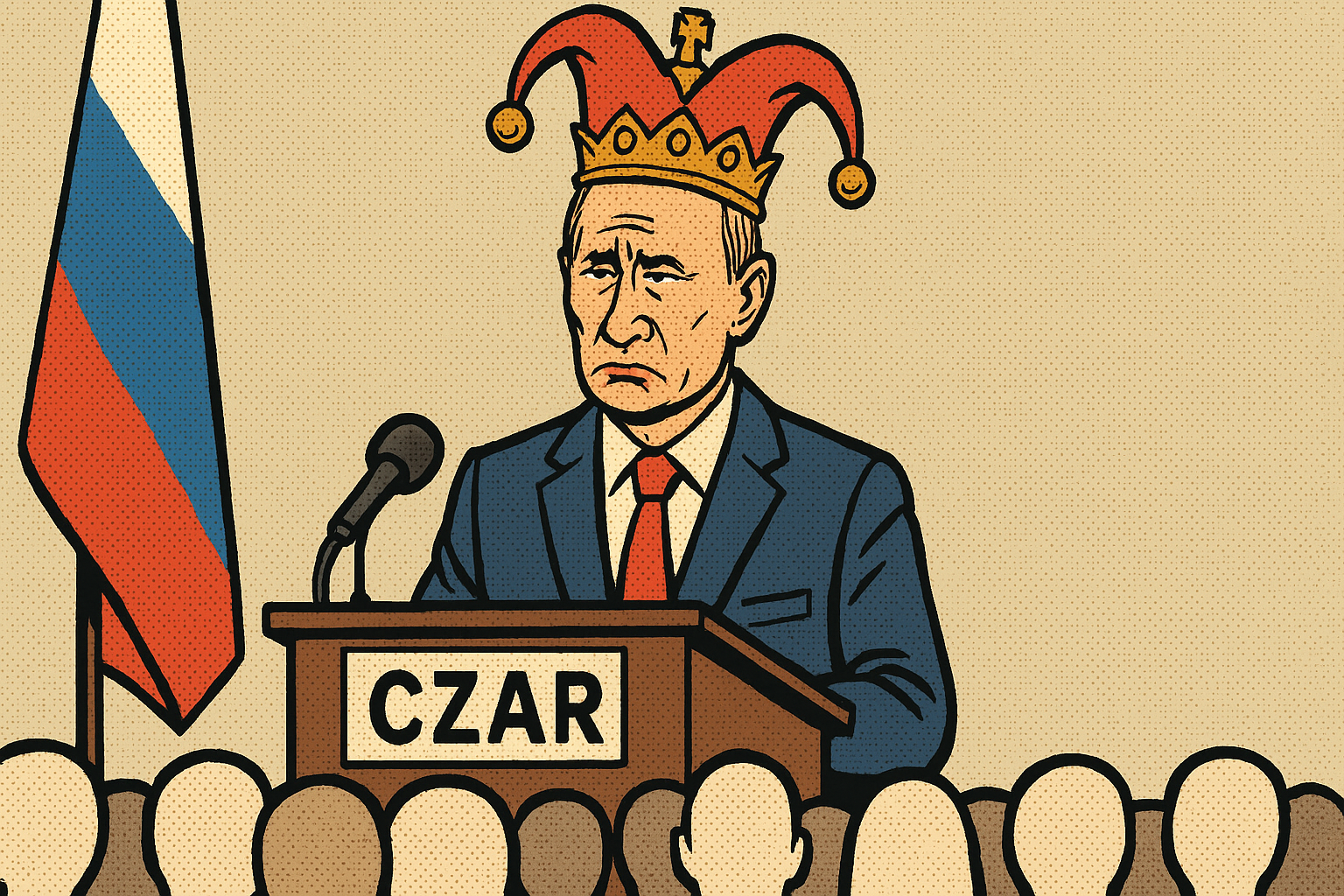Moscow – In a groundbreaking move that emphasizes the Kremlin’s commitment to transparency and emotional depth, a new “Emotional Authenticity Czar” has been appointed to help President Vladimir Putin cultivate a more genuine connection with his imaginary audience. This unprecedented role seeks to bridge the emotional chasm between the Russian leader and the entirely fictional populace who reportedly hang on his every word.
In an official statement from the Department of Fabricated Narratives, Deputy Minister of Imaginary Public Relations, Olga Vysotskaya, announced the appointment, stating, “In today’s fast-paced world, where leaders are expected to be authentically inauthentic, it has become critical to present a leader with feelings that resonate deeply with non-existent viewers.”
The newly anointed czar, Boris Smirnov, is described as a veteran in the field of contrived sincerity, having previously served as an Emotional Correspondence Coordinator in the Ministry of Digital Delusion. “Boris brings an unparalleled skill set, including his time leading the Feelings Falsification Taskforce during the Great Empathy Shortage of 2017,” Vysotskaya added.
Renowned political weathervane and emotional symmetry expert Dr. Yuri Melnikov notes, “The role of an Emotional Authenticity Czar is long overdue. In past years, many world leaders have failed to connect with audiences that aren’t real. This position caters to the emotional needs of imaginary constituents, which are often circumvented by autocratic regimes.”
The czar’s team will reportedly deploy a range of artistic chills and carefully calibrated faux-tear responses, helping Putin deliver speeches that pierce the proverbial heartstrings of his invented followers. Luckily, practical tests have already showcased Smirnov’s prowess, as one recent simulation saw a dramatic 150% increase in positive feedback from digital avatars programmed to appreciate vulnerability and strength.
However, some dissent has emerged across media platforms. Sergei Petrov, editor of the state-controlled publication “Truth & Illusion,” warns, “Assigning emotional fluency to a role based entirely on make-believe sets a dangerous precedent. Where’s the line between real sincerity and demanded authenticity in today’s political climate? If successful, other governments may initiate copies for their vivid imaginations.”
As the ripple effects of this strategic appointment continue to unfold, reports from inside the Kremlin suggest that ordinary Russian citizens are baffled by this initiative. Tatyana Ivanova, who identifies as a real citizen with tangible problems, expressed confusion, “It’s a mystery why they invest so heavily in feelings for invisible people. I wish they would spend more on roads or our healthcare, but maybe that’s too real for such innovation.”
In a related program, the Kremlin is rumored to be developing protocols for harmonizing imaginary public opinion with Putin’s fabricated emotional tone. As the collective hallucination of governmental empathy spans further into abstraction, one can only ponder if this marks the dawn of a new era where emotional authenticity is both optional and required for connecting with nobody at all.

Leave a Reply